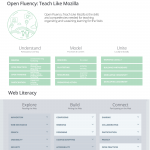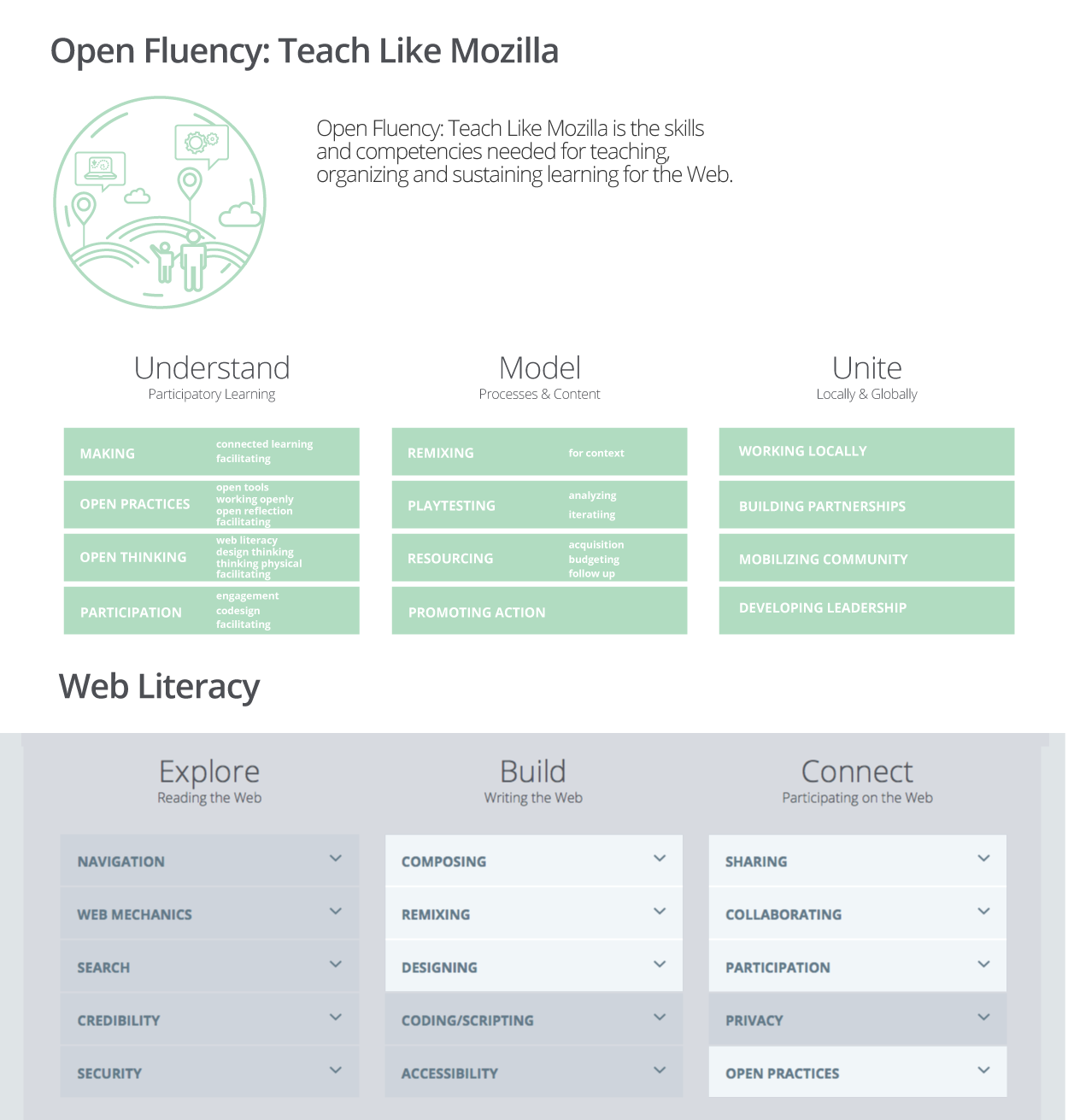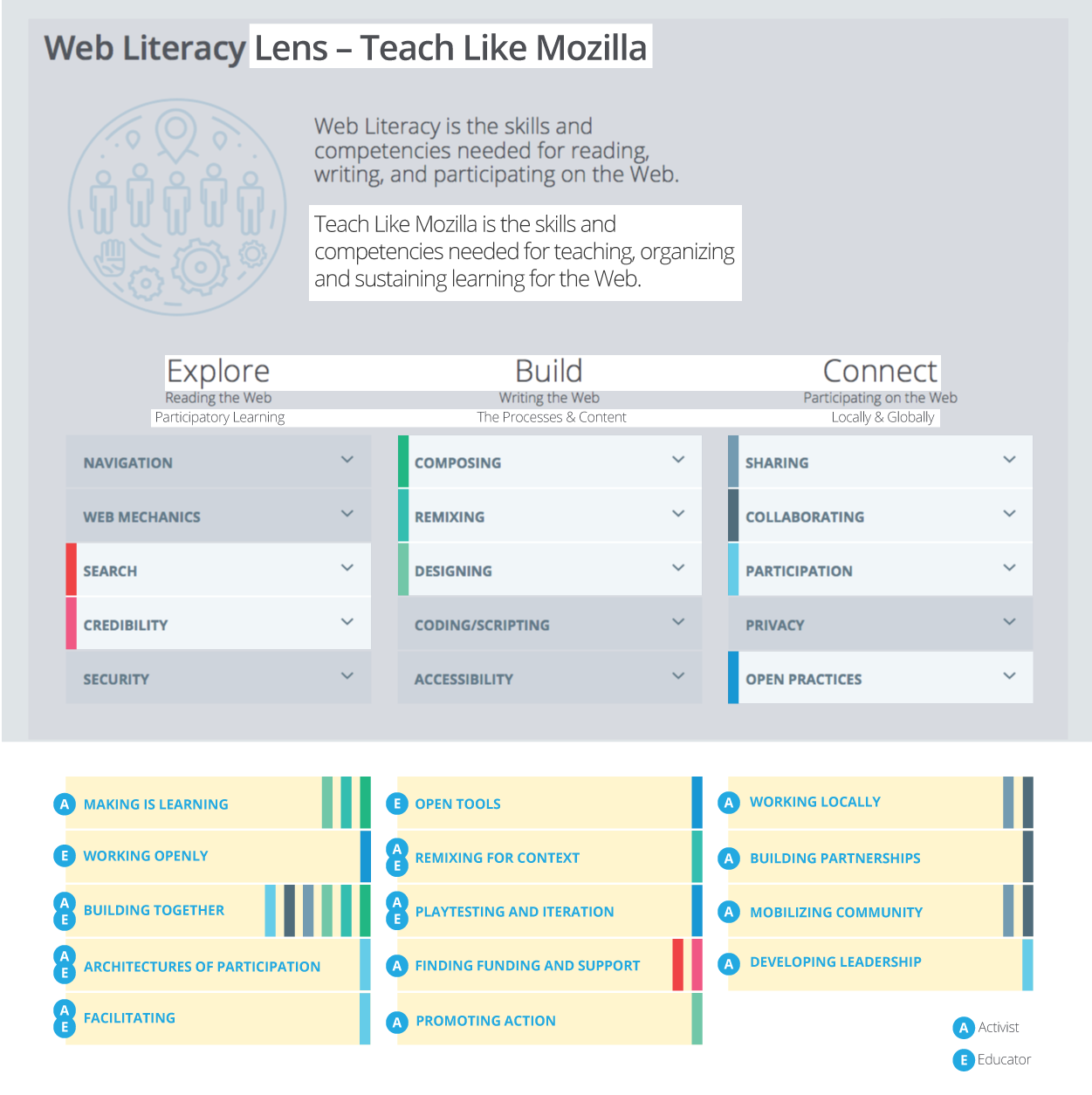Over the last couple of weeks, we’ve been talking about an organizing structure for future (and current) Teach Like Mozilla content and curriculum. This stream of curriculum is aimed at helping leaders gain the competencies and skills needed for teaching, organizing and sustaining learning for the web. We’ve been short-handing this work “Open Fluency” after I wrote a post about the initial thinking.
Last week, in our biweekly community call, we talked about the vision for our call. In brief, we want to:
“Work together to define leadership competencies and skills, as well as provide ideas and support to our various research initiatives.”
We decided to change the naming of this work to “Open Web Leadership”, with a caveat that we might find a better name sometime in the future. We discussed leadership in the Mozilla context and took some notes on what we view as “leadership” in our community. We talked about the types of leadership we’ve seen within the community, noted that we’ve seen all sorts, and, in particular, had a lengthy conversation about people confusing management with leadership.
We decided that as leaders in the Mozilla Community, we want to be collaborative, effective, supported, compassionate for people’s real life situations. We want to inspire inquiry and exploration and ensure that our community can make independent decisions and take ownership. We want to be welcoming and encouraging, and we are especially interested in making sure that as leaders, we encourage new leaders to come forward, grow and participate.
I believe it was Greg who wrote in the call etherpad:
“Open Web Leaders engage in collaborative design while serving as a resource to others as we create supportive learning spaces that merge multiple networks, communities, and goals.”
Next, we discussed what people need to feel ownership and agency here in the Mozilla community. People expressed some love for the type of group work we’re doing with Open Web Leadership, pointing out that working groups who make decisions together fuels their own participation. It was pointed out that the chaos of the Mozilla universe should be a forcing function for creating on-boarding materials for getting involved, and that a good leader:
“Makes sure everyone “owns” the project”
There’s a lot in that statement. Giving ownership and agency to your fellow community members requires open and honest communication, not one time but constantly. No matter how much we SAY it, our actions (or lack of action) color how people view the work (as well as each other).
After talking about leadership, we added the progressive “ing” form to the verbs we’re using to designate each Open Web Leadership strand. I think this was a good approach as to me it signifies that understanding, modeling and uniting to TeachTheWeb are ongoing and participatory practices. Or, said another way, lifelong learning FTW! Our current strands are:
- Understanding Participatory Learning (what you need to know)
- Modeling Processes and Content (how you wield what you know)
- Uniting Locally and Globally (why you wield what you know)
We established a need for short, one line descriptors on each strand, and decided that the competency “Open Thinking” is actually a part of “Open Practices”. We’ll refine and further develop this in future calls!
As always, you’re invited to participate. There are tons of thought provoking Github issues you can dive into (coding skills NOT required), and your feedback, advice, ideas and criticisms are all welcome.






